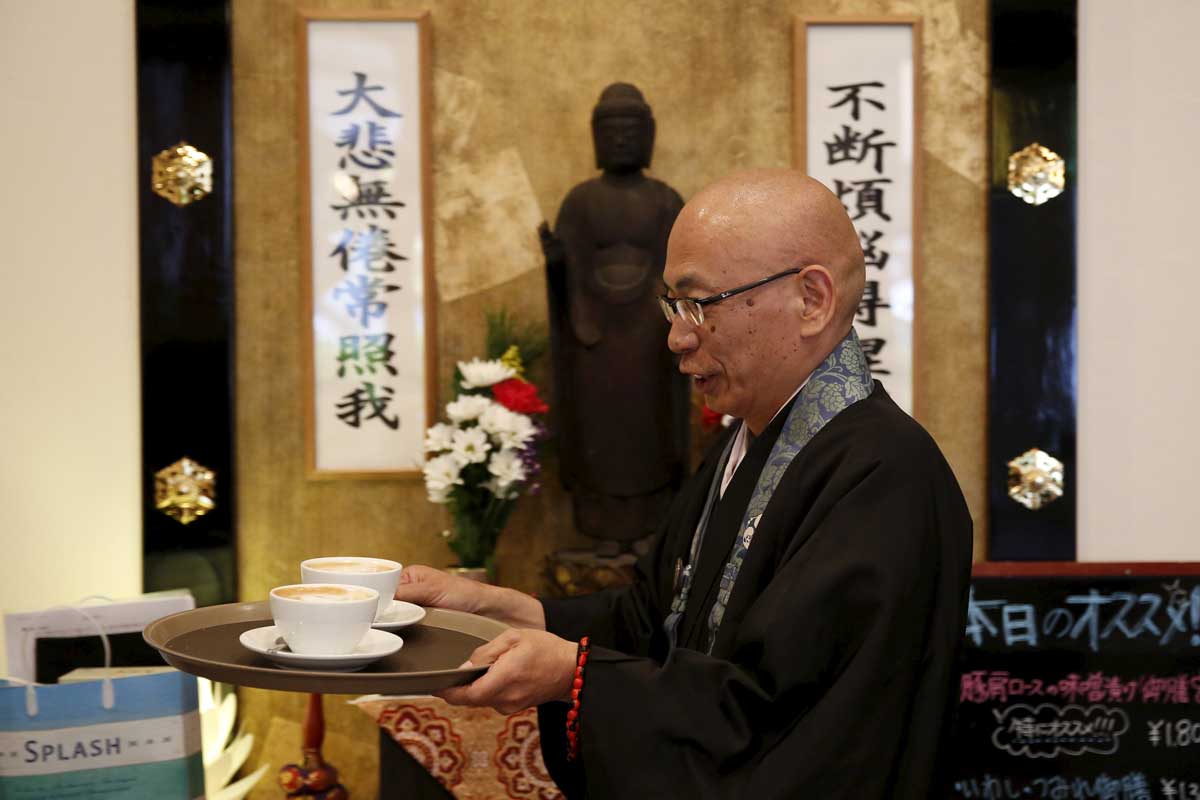TOKYO – The hum of conversation and the clinking of coffee cups fills the wood-panelled cafe in a fashionable Tokyo neighbourhood as more than a dozen customers sip drinks and nibble desserts.
At first glance, the cafe, which also serves alcohol, looks like any other, except for an altar next to the bar counter with a Buddha statue set against a gold backdrop. Its name, Tera Cafe, is also a hint – tera is Japanese for temple.
The menu confirms this is something different. It lists classes for 1,500 yen (S$18.70) in weaving prayer beads, calligraphy with sutras, or lines of scripture and consultations with a Buddhist priest.
Tera Cafe is part of a flourishing phenomenon in Japan where Buddhist monks are seeking to make inroads in the modern world as the public’s connection with a 15-century-old tradition fades.
Gone are the days when the faithful would drop by their neighbourhood temple to talk to a monk over tea.
Hirotake Asano, head priest at the Shingyoji temple near Tokyo who opened Tera Cafe in 2013, said Buddhist priests had to venture into society to build links. “Instead of lamenting that people no longer visit temples, I wanted to bring the temple to the people,” said Mr Asano who owns four eateries and a golf shop.
Amazon Japan and retail giant Aeon also list rent-a-monk services for funerals and other rituals. There is also a chain of bars where ordained priests clad in traditional robes serve cocktails and offer advice.
Many sects of Japanese Buddhism allow priests to drink alcohol, eat meat and marry.
Aya Nishi, a 23-year-old customer at Tera Cafe, said: “I have a dark image of temples, like with funerals. But this cafe is well-lit and welcoming. I was surprised that they even serve alcohol.”






